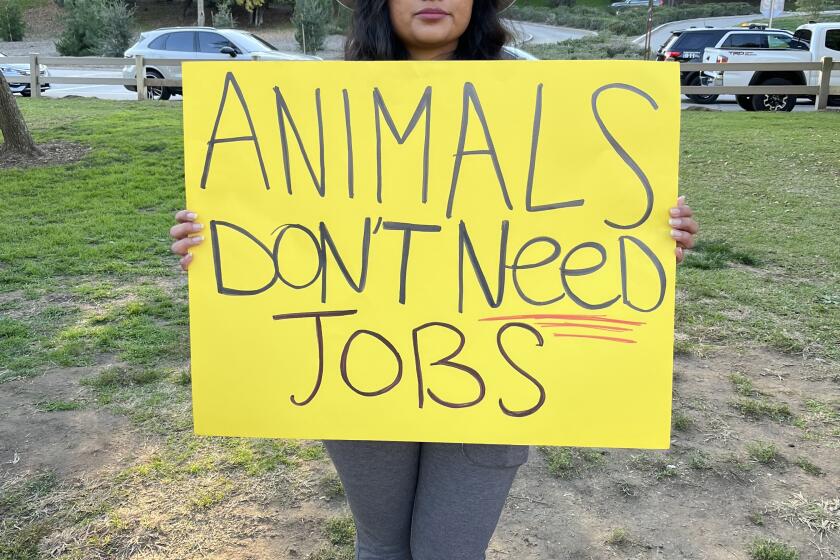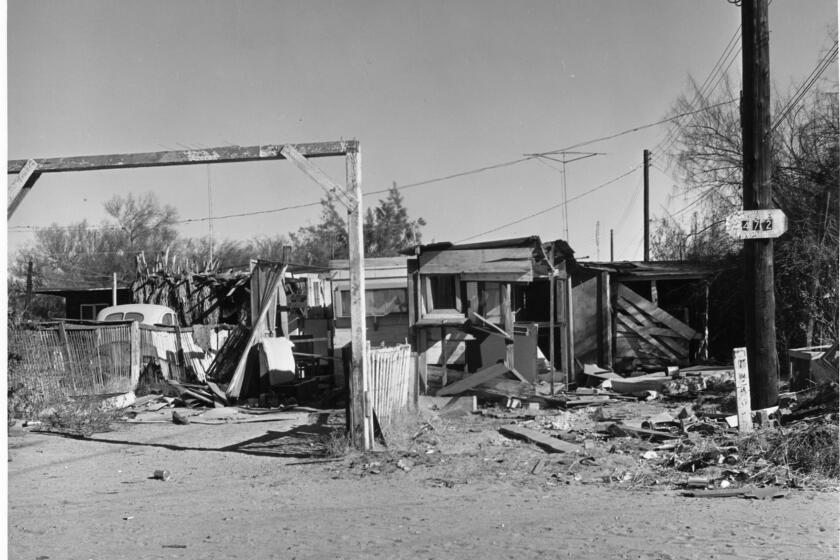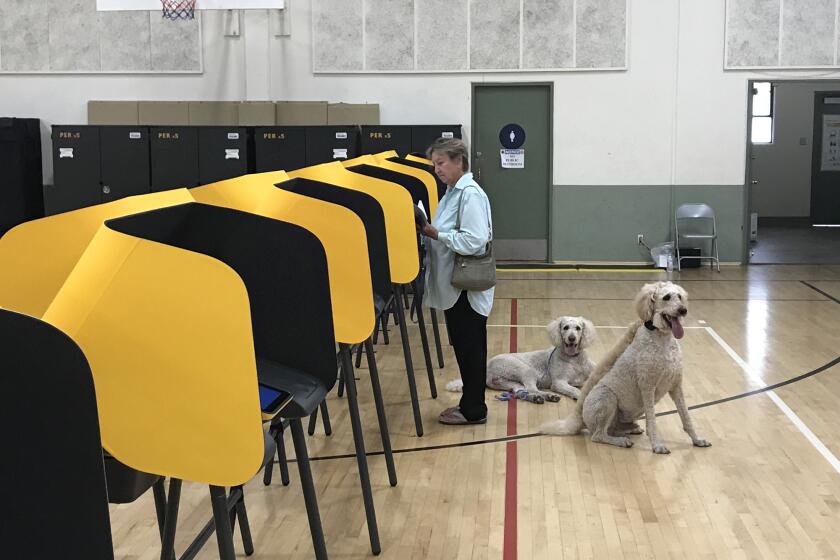
Gale Holland
Follow Us
Former staff writer Gale Holland covered addiction and homelessness for the Los Angeles Times. Starting in 2005, she edited the law enforcement and legal affairs beat, wrote news columns and covered higher education. A series about college construction abuses she wrote with Michael Finnegan won an investigative reporting award from the Nieman Foundation. A Los Angeles native, she has extensive experience covering courts for Copley News Service and USA Today, and she has worked as an editor and a writer for LA Weekly and the Daily Journal.
Latest From This Author
Michael Neely, innovator and leader in L.A. homeless and drug treatment services, has died at age 74
Neely, a Marine veteran of the Vietnam War, drew up the idea for Los Angelesâ first homeless outreach team while living in a cardboard box on Skid Row.
Rowe rejected the idea homeless people were âservice-resistant,â feeling they would come indoors if people would only listen to them.
Pipe handouts and other harm reduction can be a bridge to treatment, and cut infection and disease, including HIV. But pipes are controversial, not just in GOP circles but on Skid Row, a drug ârecovery zoneâ that saw the worst of the crack epidemic.
Palm Springs se enfrenta a un reclamo por reparaciones de 2.000 millones de dólares por parte de familias negras y latinas que fueron desalojadas de sus hogares hace 50 años
Palm Springs faces a $2-billion reparations claim from Black and Latino families who were burned out of their homes 50 years ago during âslum clearance.â
The Lyrid meteor shower, one of the oldest known such phenomena, appears this year with little moon interference, promising a good show.
Dr. Jonathan Sherin railed against the red tape and underfunding plaguing the county department of mental health when he stepped down. His successor will face similar problems.
After more than 70 years, the Los Angeles declined to extend the lease of the Griffith Park Pony Rides. The decision followed protests by animal welfare activists who claimed the ponies were overworked and neglected.
Former residents and their descendants say the city of Palm Springs owes them up to $2 billion in damages for the forcible removal in the 1950s and â60s of cooks, chauffeurs and builders who helped turn the desert town into a playground for the stars.
Voting in the rain is a duty, not a delight. With alternatives including mail-in ballots and drop boxes, why are Angelenos still at the polls?
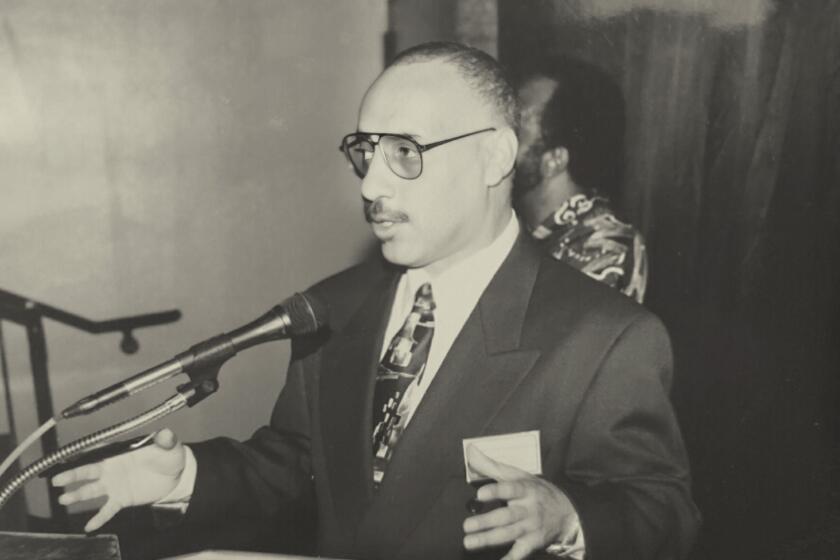
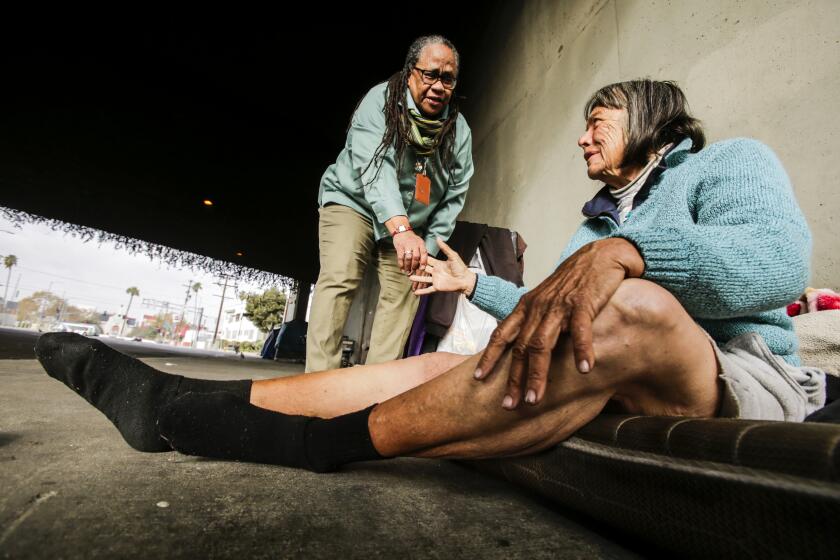
![Los Angeles, CA - May 19: Oscar Magana, 22, left, who struggles with mental problems but does not use drugs, sits in his tent as his step father, Johnny Roman, right, 58, who is addicted to meth, bipolar, manic depressive, and ADHD, puts bags of supplies for drug use in their tent encampment near Avalon Boulevard and East Florence Avenue in South Los Angeles Friday, May 19, 2023. The bags of supplies were distributed by a team from Homeless Outreach Program Integrated Care Systems [HOPICS] and includes drug pipes, overdose reversal nasal spray, fentanyl test strips, wipes and educational materials are aimed at preventing infection and disease, and saving them from the fentanyl death crisis. (Allen J. Schaben / Los Angeles Times)](https://ca-times.brightspotcdn.com/dims4/default/17c39ea/2147483647/strip/true/crop/3900x2600+0+168/resize/840x560!/quality/75/?url=https%3A%2F%2Fcalifornia-times-brightspot.s3.amazonaws.com%2Ff2%2Fc8%2Fa65d8e8f48afab4d760e8df4219e%2F1298639-me-soaring-fentanyl-deaths-16-ajs.jpg)



